A Complete Guide to Kids’ Mental Health and Sleep
- by Carley Prendergast
- Updated: October 16, 2023
Table of Contents
It’s an important topic that isn’t talked about enough – your child’s mental health. Are you checking in on them? Are you communicating with them? Are you aware of how a mental health concern may be impacting their sleep? Whether your kid is 3 or 14, it’s important to intervene as early as you can. Be a resource, provider, and trusted adult. Let’s get into how you can be there for your child!
When we refer to kids in this guide, we will be speaking with the following the Centers for Disease Control and Prevention (CDC) breakdown of age groups in mind:
- Middle Childhood (6-8 years of age)
- Middle Childhood (9-11 years of age)
- Young Teens (12-14 years of age) (1)
The importance of children’s mental health
Mental health is so important for children and their growing minds. Early experiences in one’s life lay the foundation for development, learning, relating to others, and more. Any of these areas of life can have lifelong implications and need to be addressed accordingly and early.
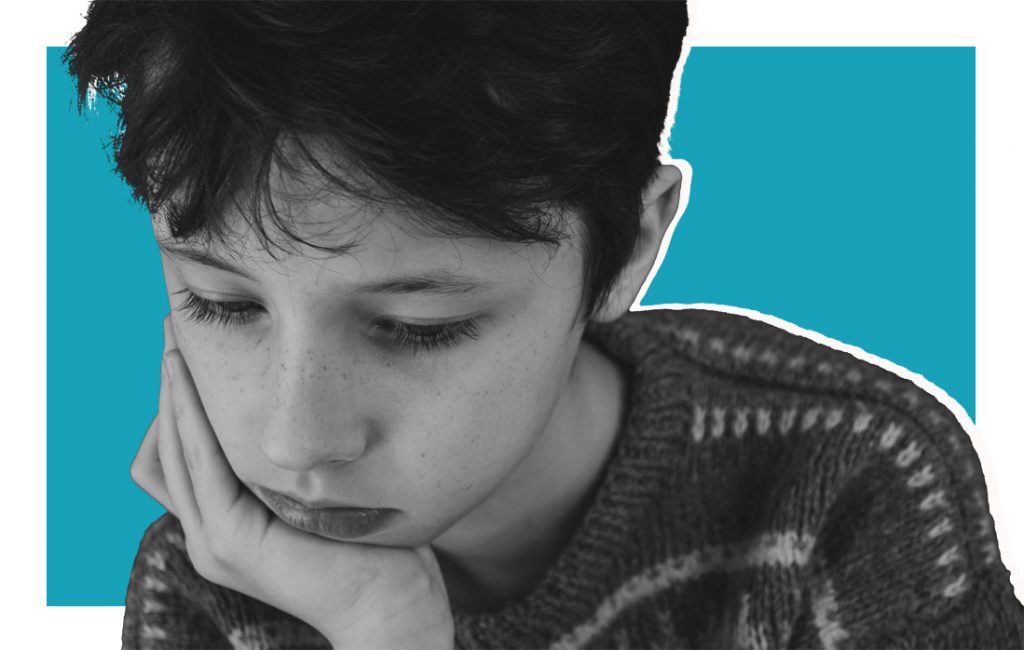
The Center on the Developing Child at Harvard University notes that in childhood mental health, genes can raise a predisposition to other concerns, mental health disorders can be harder to pinpoint at a young age, and toxic stress “can damage brain architecture and increase the likelihood that significant mental health problems will emerge either quickly or years later.” They stress the importance of tackling mental health and any concerns earlier rather than later. (2)
The connection between mental health and sleep in kids
Mental health and sleep go hand in hand. As we reported in a previous Sleepopolis article, sleep is essential for processing the memories and emotions that you experience each day while you’re awake. A lack of sleep can affect your mood and make you feel grumpy.
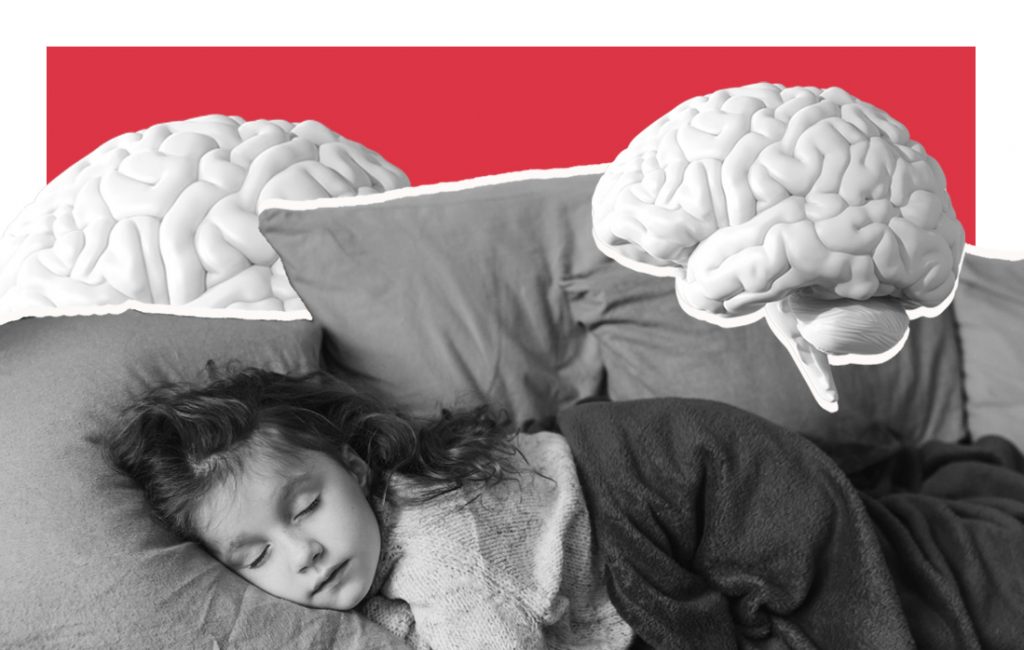
It’s not just emotional either. It can affect your cognitive or brain function throughout the day. For example, a poor night’s sleep can make it harder to sit still at school or retain the information you need to learn.
It is also essential for recharging your muscles and giving you energy to move around and conquer the day.
Check out our kids guide for understanding sleep for more.
Tips for better sleep and mental health in kids
So, what can parents and kids themselves do to improve their sleep and mental health? We’ve got some tips.
Improving Sleep Schedules and Solidifying Routines
According to Janey Reilly, CEO and Founder of WeeSleep, a sleep training company for children, “Parents can ensure their child is on a proper sleep schedule and that their bedtime aligns with a proper number of hours sleeping for their age. Often children are put to bed too late and are not getting an optimal amount of sleep. A child’s brain needs sleep to restore resources that were used up during the day. When a brain is rested it can learn new information, solve problems, and have a more joyful day than if they have a tired foggy brain.”
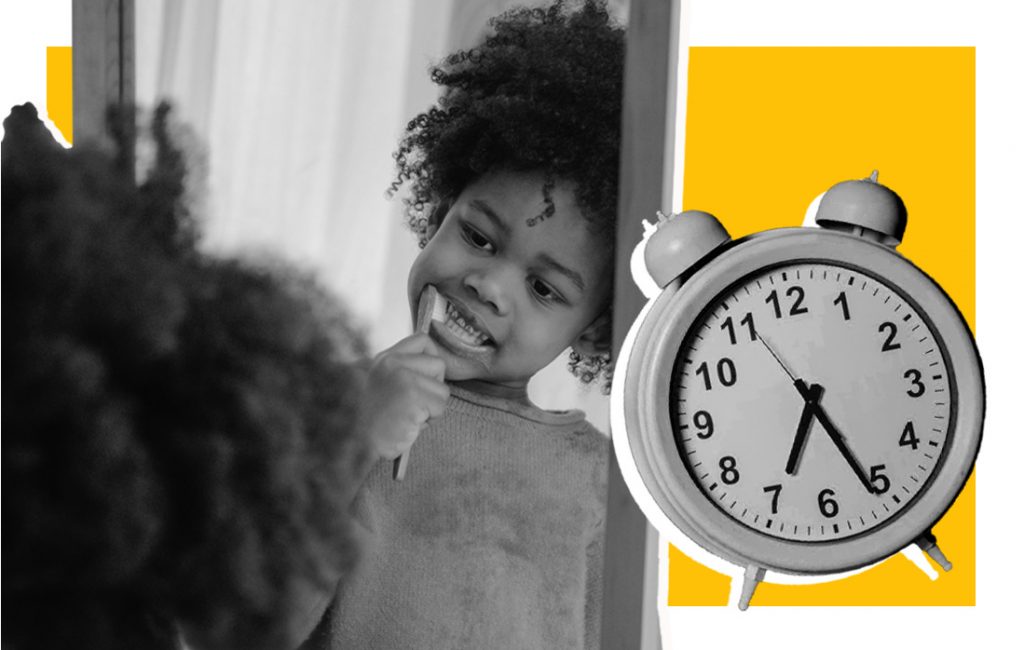
Reilly also suggests keeping children on a routine. “A well-planned bedtime routine is a great way to clear the hectic tasks and activities of the day; to exhale, unwind, and let their brain and body know it’s time for sleep. Keeping the same bed time and bedtime routine will do wonders for a child’s mental health and sleep. Take 30-40 minutes to have a bath, brush up, read a book and/or have a little recap of the day. This time can be in a calm setting and space to prepare for a healthy night of sleep.”
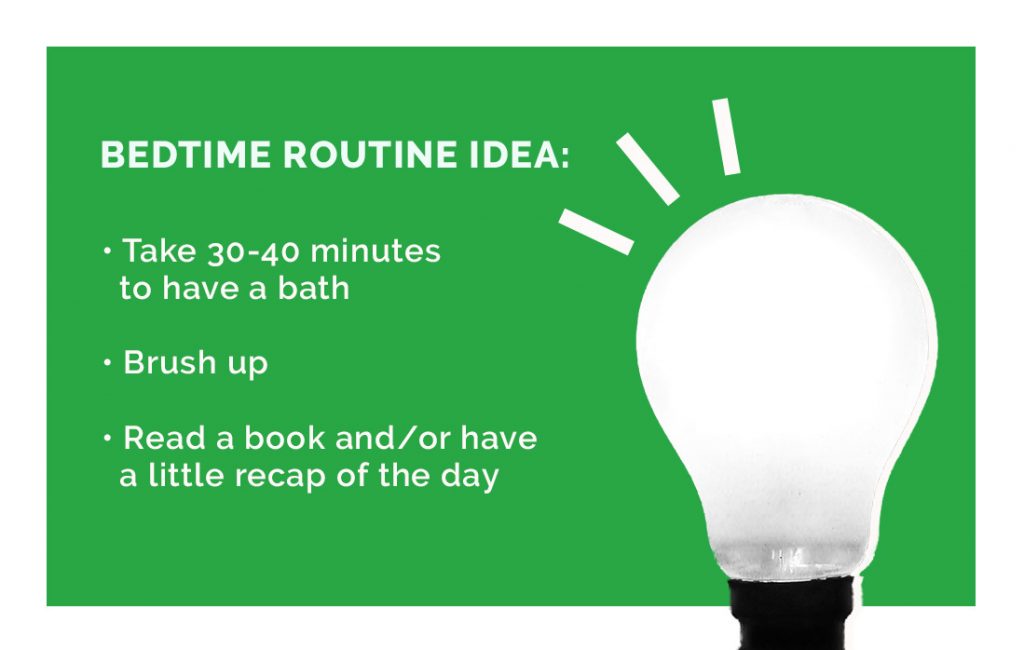
She claims the benefits of a proper bedtime can “significantly affect a child’s health mentally, physically, and emotionally,” including:
- Better dietary habits
- Faster to fall asleep
- Less night wakes
- Healthier habits for the future
- A calmer and more quality time before bed
- Less resistance at bedtime
- Less early morning rising
- A more restful and joyful evening for the parents
Keeping a Healthy Diet
“A balanced diet low in refined sugars and processed foods is important. Fueling our bodies throughout the day with nutritious wholesome foods will set us up for sleep success,” says Reilly. She recommends the following snacks to keep kids satisfied and getting good sleep:

- Banana and Almond Butter Pinwheels – Bananas are high in the natural muscle relaxant and sleep-promoter, magnesium, as well as melatonin and serotonin. Nut butter is rich in fat and high in protein, and whole-grain wraps have the right amount of complex carbs to keep children sleeping through the night.
- Sugar Free Greek Yogurt with Cherries – Cherries can increase melatonin levels and dairy products are melatonin and calcium-rich, plus they contain the amino acid tryptophan, which our body turns into serotonin and in turn promotes a feeling of calm. (Tart cherry juice is also known to be a great sleep-promoter!)
- Whole Grain Mini Bagel with Melted Cheese – “A complex carb-rich whole grain bagel can promote sleep by producing insulin while the cheese has the tryptophan. So easy and so delicious!”
Cutting Back Screen Time Before Bed
“So many kids love their devices and it’s important to know that studies have shown devices can interfere with sleep by suppressing the production of melatonin, a natural hormone released in the evening to help you feel tired and ready for sleep. This leads to feelings of alertness when your child should be winding down instead,” Reilly says.
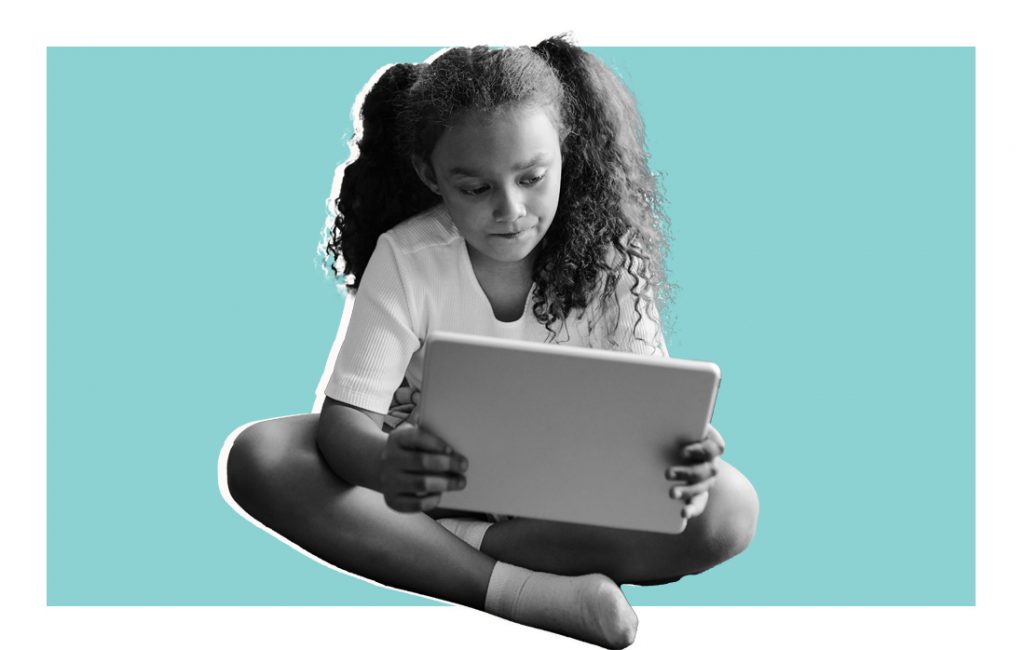
As we know, blue light is a big part of this melatonin suppression, so the earlier you can cut out device-use before bedtime, the better!
Understanding mental health for kids
Looking for ways or tools to talk to your child about different mental health concerns before bedtime? Try these stories as you tuck your little one in, courtesy of the Child Mind Institute.
- For children who’ve been or suspected to have been abused. I Said No! A Kid-to-Kid Guide to Keeping Private Parts Private – Written by Zach and Kimberly King, illustrated by Sue Rama
- For the young one who’s suffered from trauma. A Terrible Thing Happened – Written by Margaret M. Holmes, illustrated by Cary Pillo
- For an anxious child. Don’t Feed the WorryBug – Written and illustrated by Andi Green
- For the kid who’s being bullied. Chrysanthemum – Written and illustrated by Kevin Henkes
- For children who could be the bully themselves. Am I a Bully? – Written by Hope Gilchrist, illustrated by Zoe Jordon
- For the child whose parent is depressed or an addict. Can I Catch It Like a Cold? Coping With a Parent’s Depression – Written by the Centre for Addiction and Mental Health, illustrated by Joe Weissmann
- For the little one who’s lost someone they love. I Miss You: A First Look at Death – Written by Pat Thomas, illustrated by Lesley Harker
- For the kid who’s struggling with their identity. Red: A Crayon’s Story – Written and illustrated by Michael Hall
- For the child who’s experiencing low self-esteem. What I Like About Me! – Written by Allia Zobel Nolan, illustrated by Miki Sakamoto
- For the kid whose parents are divorcing. Two Homes By Claire Masurel and Kady Macdonald Denton
- For the kiddo with Tourette’s Syndrome. Forget Me Not – Written by Ellie Terry
- For the little one who has OCD. Mr. Worry: A Story About OCD – Written by Holly L. Niner, illustrated by Greg Swearingen
- For the kid who has ADHD. Why Can’t Jimmy Sit Still? – Written by Sandra L. Tunis, PhD, illustrated by Maeve Kelly
- For the child with autism. Armond Goes to a Party: A Book About Asperger’s and Friendship – Written by Nancy Carlson and Armond Isaak, illustrated by Nancy Carlson (3)
Early childhood mental health expert, Anjali Gowda Ferguson, PhD, offers the following questions that you can ask your child during or after reading one of these books.
- What did you notice in X character?
- What might X character be feeling?
- Have you ever felt like X character?
- Do you notice any things you have in common with X character?
- Anything you feel/experience differently from X character?
Questions like these will help start a dialogue between you and your child about mental health.
Factors that impact kids’ mental health and their sleep
According to the CDC, “Being mentally healthy during childhood means reaching developmental and emotional milestones and learning healthy social skills and how to cope when there are problems. Mentally healthy children have a positive quality of life and can function well at home, in school, and in their communities. Mental disorders among children are described as serious changes in the way children typically learn, behave, or handle their emotions, which cause distress and problems getting through the day.” (4)
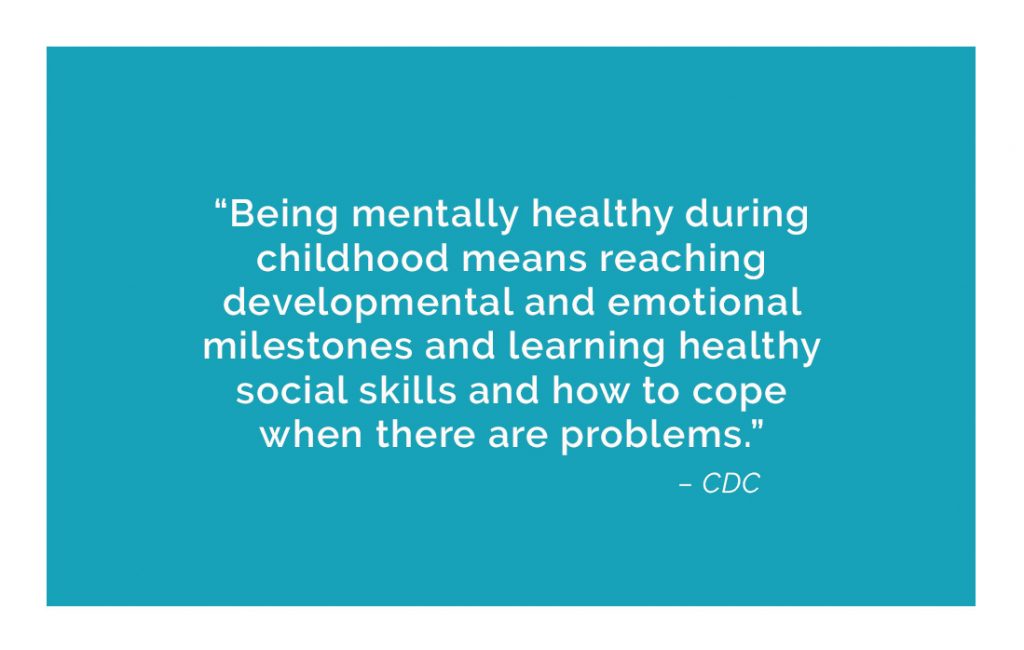
Now that we know a bit more about mental health in the lens of kids, let’s look into some of the mental health concerns that children face today and how they affect their sleep.
Bullying can cause changes in sleep habits
The U.S. Department of Health and Human Services site stopbullying.gov defines bullying as “unwanted, aggressive behavior among school aged children that involves a real or perceived power imbalance. The behavior is repeated, or has the potential to be repeated, over time.” This is something that occurs in person as well as online, known as cyberbullying.
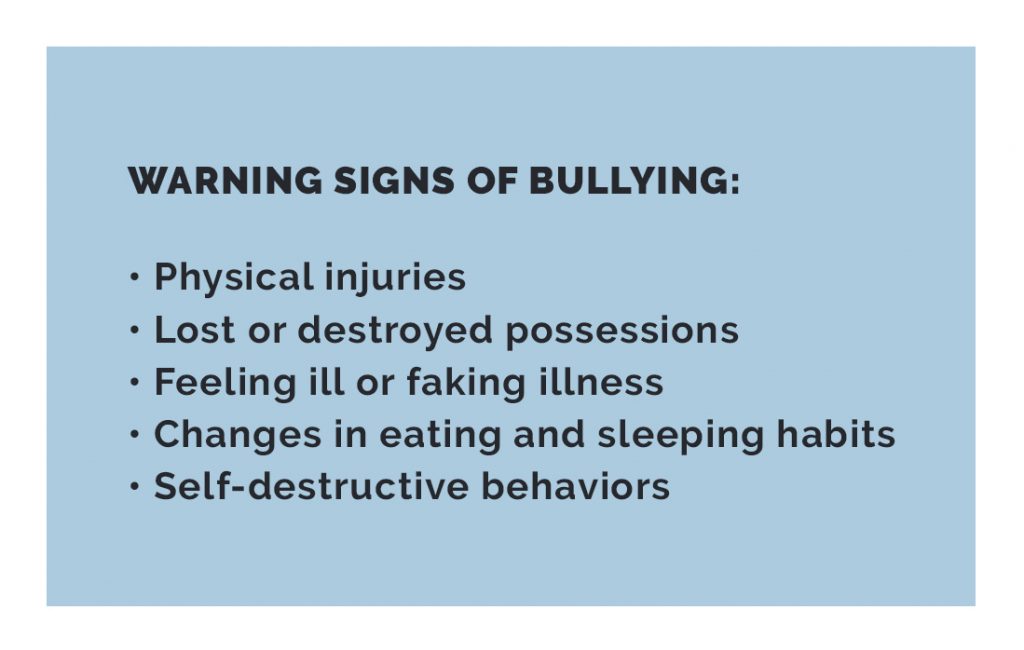
Kids who are bullied can experience negative lasting effects such as depression, anxiety, and poor academic performance. Warning signs for children who are being bullied can also include physical injuries, lost or destroyed possessions, feeling ill or faking illness, changes in eating and sleeping habits, and self-destructive behaviors.
While the media often connects bullying with suicide, it’s not always the root cause. It often amplified existing issues. Depression, tough home situations, prior trauma, as well as a lack of support from parents, teachers, and fellow students can contribute to suicidal thoughts or actions as well.
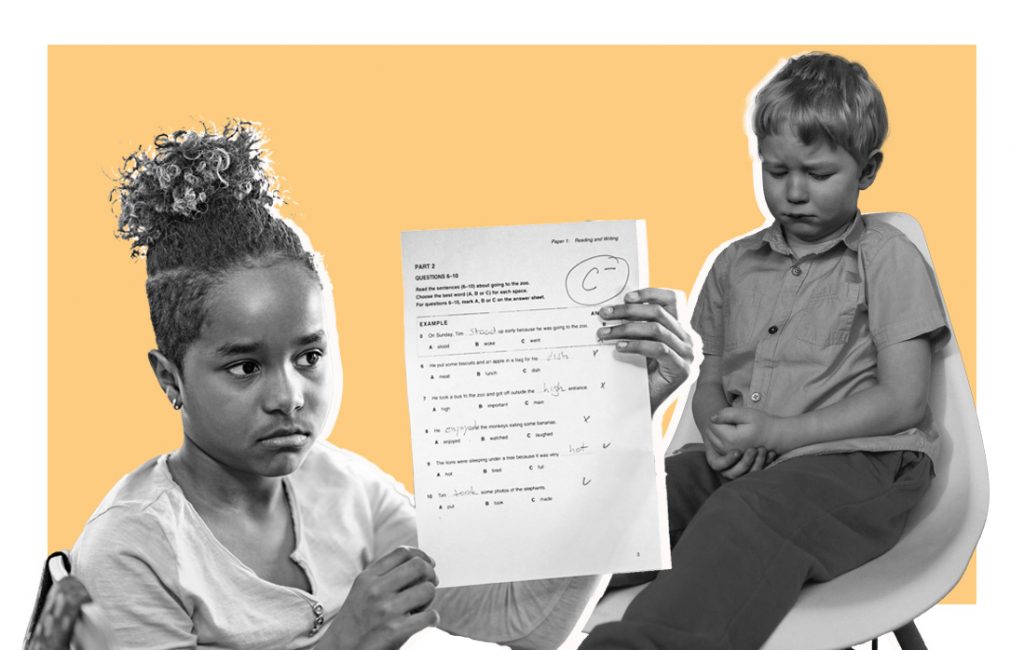
As for prevention, schools can enforce policies and rules that prevent bullying and teach students the right way to treat one another. Parents can raise their children from a young age to treat others with respect, as well as setting a good example by not making jokes about things like others’ food choices, weight, or appearance. And for children themselves, be kind and stand up when you witness something that isn’t right. (5)
Each of these issues can also bleed into anxiety and intrusive thoughts keeping them from getting proper sleep. Especially if a child knows they are awaiting a bully to face at school the next day, it can be troubling to get a full night’s rest. Bestrong.global also says that “If your child is engaging in bullying behavior against another student, it’s possible they are suffering from a sleep disorder.”
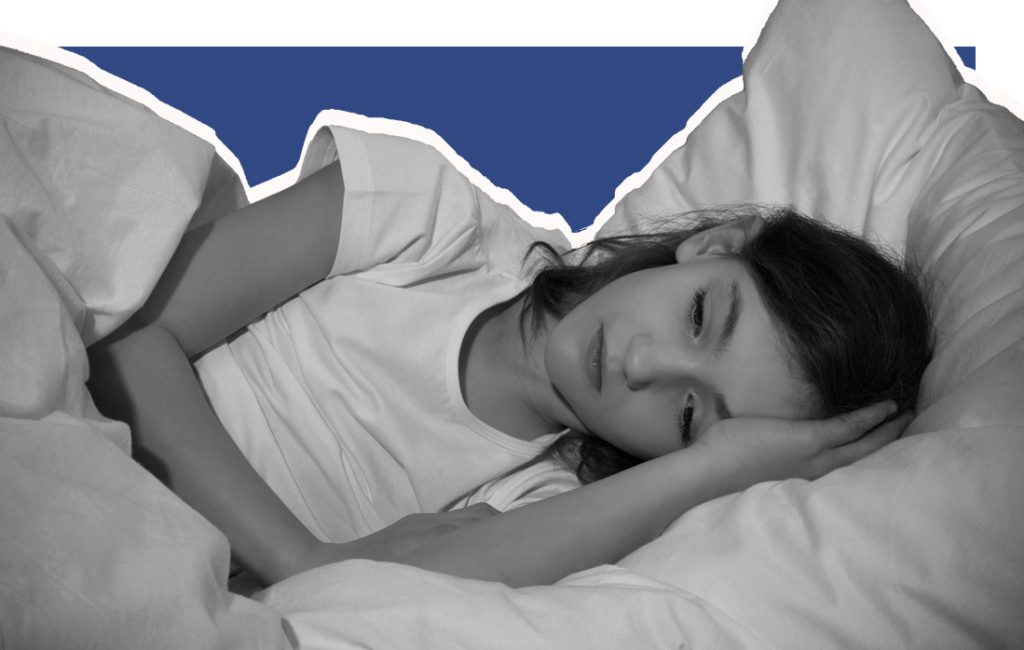
They include limit-setting sleep disorder, childhood apnea, medications, and pain and stress as some of the concerns to blame. They recommend reading before bed, selecting the right foods for sleep that are rich in tryptophan and magnesium, encourage good sleep hygiene, and get them outside and active during the day. (6)
Divorce can make consistent night routines difficult
One 2019 Official Journal of the World Psychiatry Association article wrote that “only about 60% of US children live with their married, biological parents.” While many children of divorce are resilient and don’t exhibit serious psychological symptoms from the divorce itself, many issues because of it can lead to mental health concerns for children.
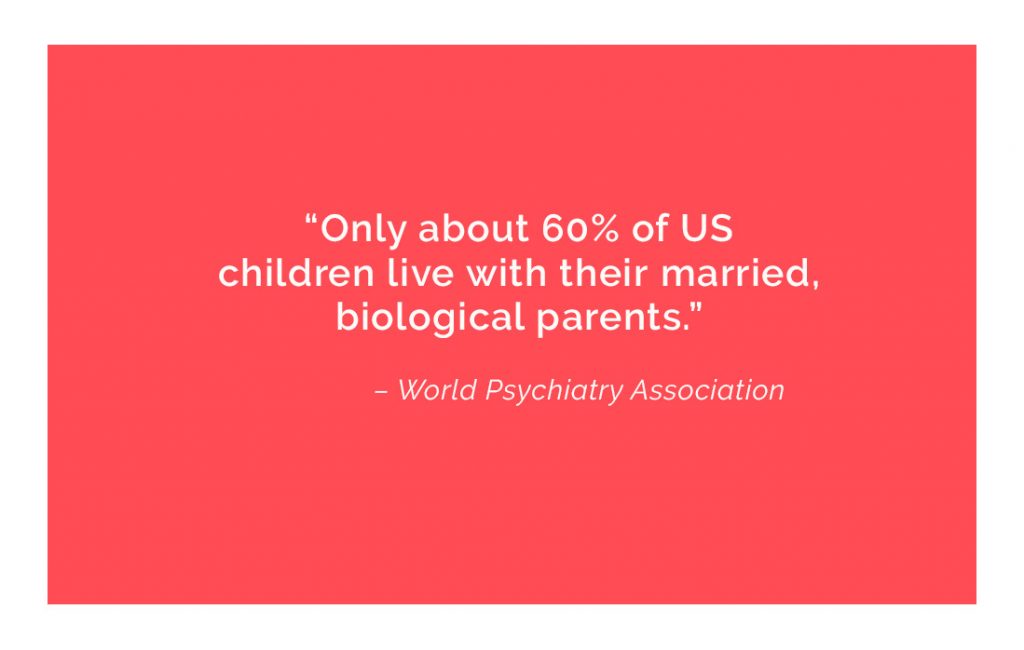
Examples of these concerns include “less effective parenting, interparental conflict, economic struggles, and limited contact with one parent, typically the father.” Added stressors can include worries about divorced parents being in the same location for different life events like weddings or graduations, something that can keep children of divorce up at night and lead them to losing valuable hours of sleep.
Physicians and schools can look for warning signs of a decline in mental health due to divorce, as well as be a support system for these young people. Luckily, while they haven’t been extensively studied, structured interventions like parenting support and education have shown to lessen the mental health concerns for children whose parents are separating. Parents can also be a resource to their child by making their physical and mental health a priority like ensuring they have someone to talk to and get a good night’s sleep. (7)
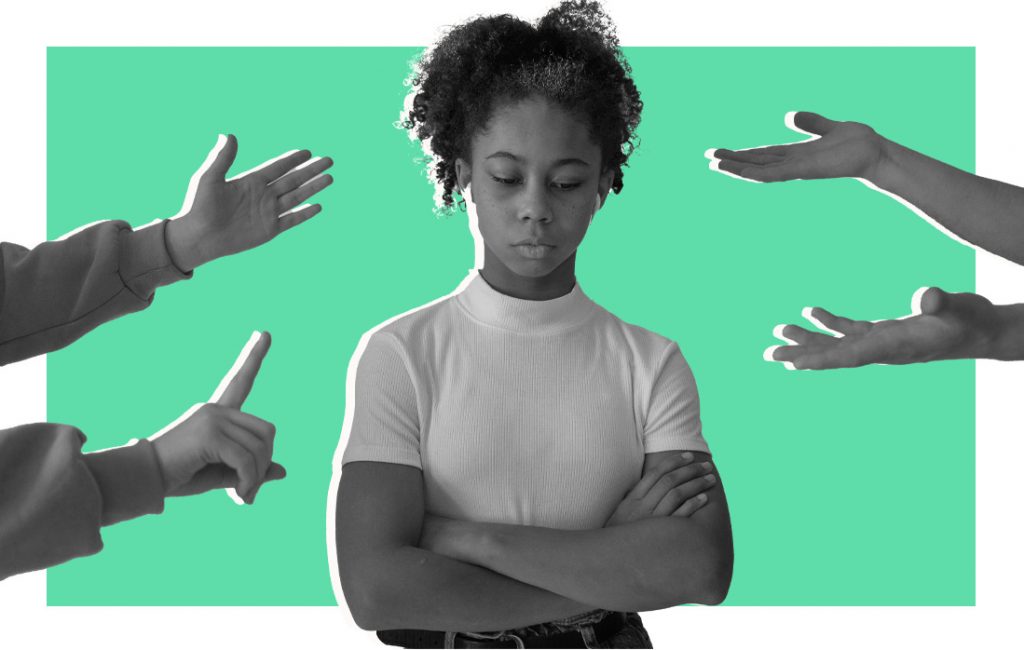
Healthychildren.org notes that “For these children, it can be difficult to maintain consistent bedtimes and going-to-bed routines when they divide their time between 2 homes after a separation or divorce.” They also warn of bedwetting and thum bsucking developing at night due to the stressors of divorce. They stress the importance of co-parenting and parents working together for a stable, consistent, and happy environment is crucial for a child’s sleep schedule, especially throughout 2 different homes. (8) And to make sure they’re sleeping right in whichever home they’re at, you can check out our best mattresses for kids.
Social Media and Screen Time increase blue light exposure and stress
A BMC Public Health study published in 2013 looked at the television and computer use of 353 children from 27 different schools. “The purpose of this longitudinal study was to investigate whether baseline electronic media use and media presence in a child’s bedroom predicted sleep habits as well as changes in these sleep habits 18 months later among 10- to 11-year-old children in Finland,” wrote the study’s authors.
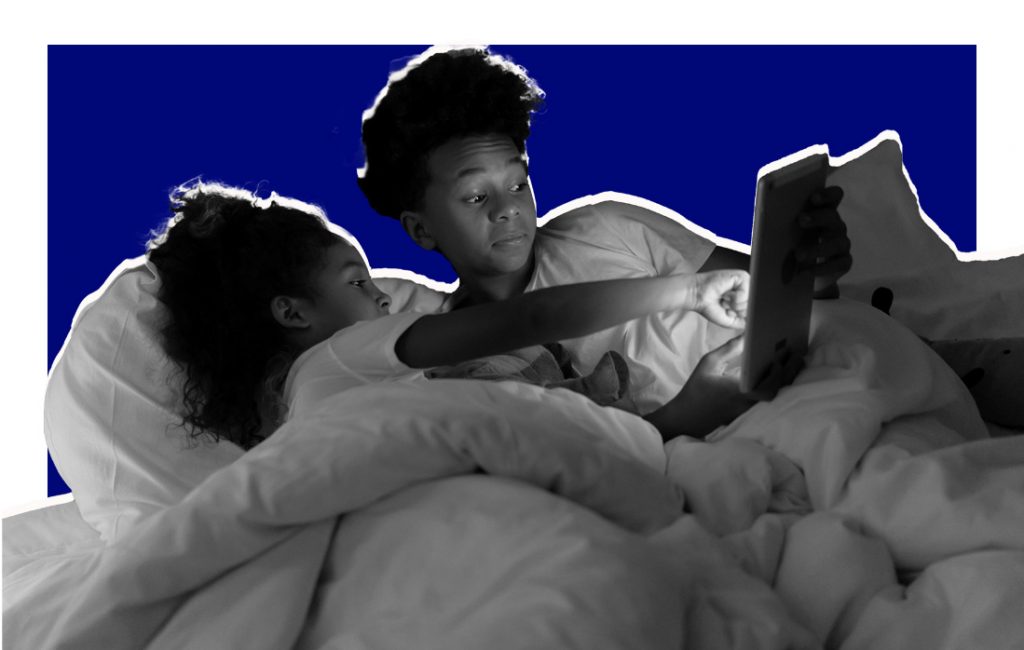
Research showed that television viewing and computer use cause both significantly shorter sleep duration and later bedtimes. A media presence in the bedroom alone showed poorer sleep habits and irregular sleep habits for boys. (9)
So, not only is media’s impact on sleep evident, it’s also a mental health concern. The Child Mind Institute’s 2017 Children’s Mental Health Report on Smartphones and Social Media found that while you can make friends on social media, it’s also linked to an uptick in mental health problems like depression, anxiety, and suicidality.
The report concluded that “Eighth-graders who spend 10 or more hours a week on social media are 56% more likely to report being unhappy than those who spend less time,” as well as “Teens who sleep less than seven hours a night are also 68% more likely to have at least one risk factor for suicide.” The mental health concerns of social media also appear to be much higher for girls, with more than twice as many reporting cyberbullying compared to boys, and a 50% increase in depression from 2012 to 2015, compared to boys at 21%.
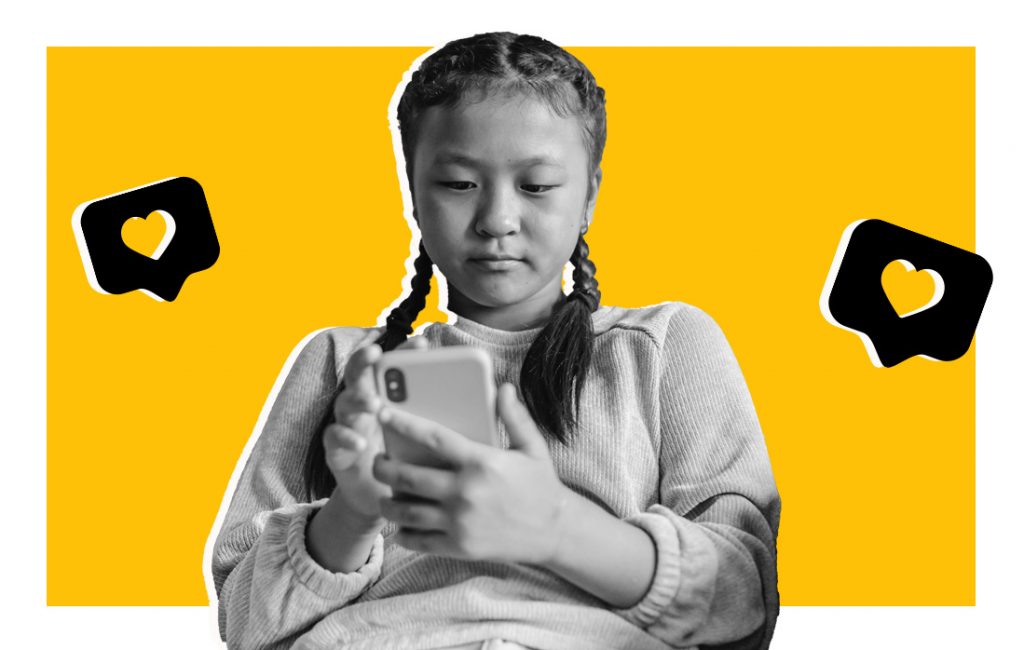
Not only is social media a stressor involved with bullying or unattainable societal norms, but looking at these devices exposes us to blue light, which can suppress the release of melatonin, keeping kids up late at night and not getting enough sleep.
The study also found that “Teens who spent three or more hours a day on electronic devices were 28% more likely to get less than seven hours of sleep, and teens who visited social media sites every day were 19% more likely not to get adequate sleep.” Not only does lack of sleep affect “mood, ability to think, to react, to regulate their emotions, to learn and to get along with adults,” but it can create depression and sleep debt because of this lack of sleep. (10)
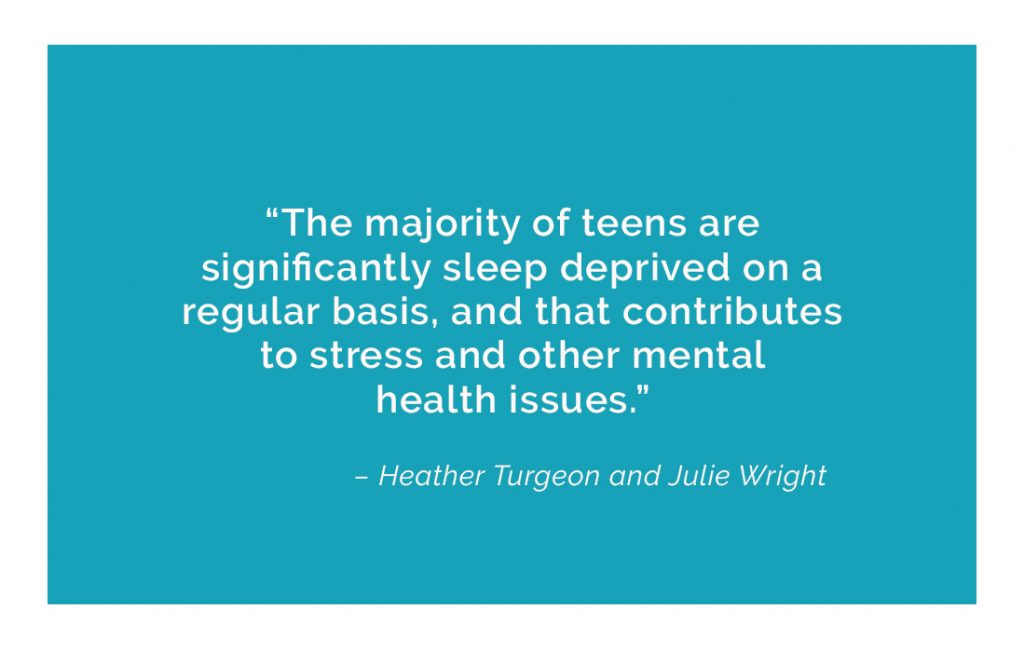
Heather Turgeon and Julie Wright, founders of The Happy Sleeper and co-authors of Generation Sleepless take a closer look at adolescents and find that “Social media and constant engagement, along with factors like excessive homework and too-early high school start times, steal sleep for teenagers. The majority of teens are significantly sleep deprived on a regular basis, and that contributes to stress and other mental health issues.”
“Teens getting at least 8 hours of sleep per night on the weeknights is game changing for their mental health, and for the family dynamics. This means earlier bedtimes for teens (which is tricky, but doable with the right habits), plus a later high school start time,” they said.
Low Self-Esteem can lead to intrusive thinking at night
The National Alliance on Mental Illness (NAMI) has found research that low self esteem can lead to mental health issues and a poorer quality of life. Low self esteem can lead to poor relationships, depression, anxiety, and even addiction. “Someone with low self-esteem has negative feelings about themselves, believing that they are not worthy of love, happiness or success,” states Anne Gold, NAMI writer. (11)
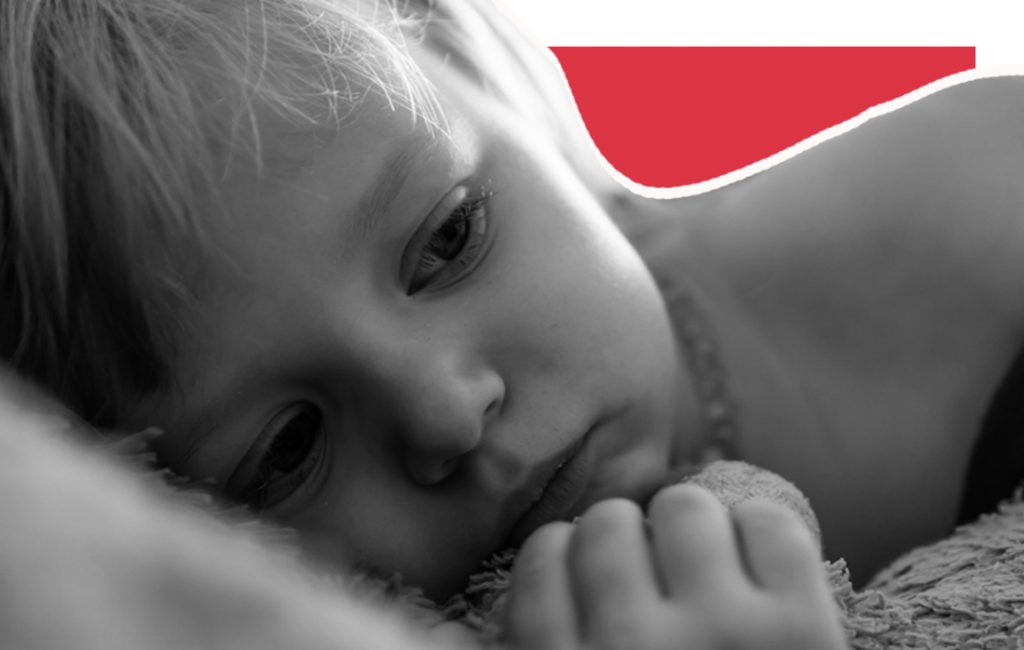
NAMI notes that one Florida State University psychological study found that low self-esteem in childhood and early adulthood can be a predisposition to addiction in later life. Drugs and alcohol can be used as a sort of escape from any negative feelings a person is having and can even further reduce someone’s level of self-esteem. (12)
Negative thoughts and perceptions of oneself can lead to a spiral of intrusive thinking before bed and impact sleep. In fact, one study found that largely independent of age or stress, low optimism and low self-esteem were associated with insomnia symptoms as well as short and long sleep duration. The study concluded that “Good and sufficient sleep is associated with positive personality characteristics. This relationship is independent of the association between poor sleep and depression.” (13)
Academic Stress can result in lost sleep
KVC Kansas calls academic pressure one of kids biggest mental health stressors. With the pressure to succeed at very young ages, children are also dealing with changes in the technological landscape of education, which introduces new ways of interacting with fellow students, teachers, and coursework material.
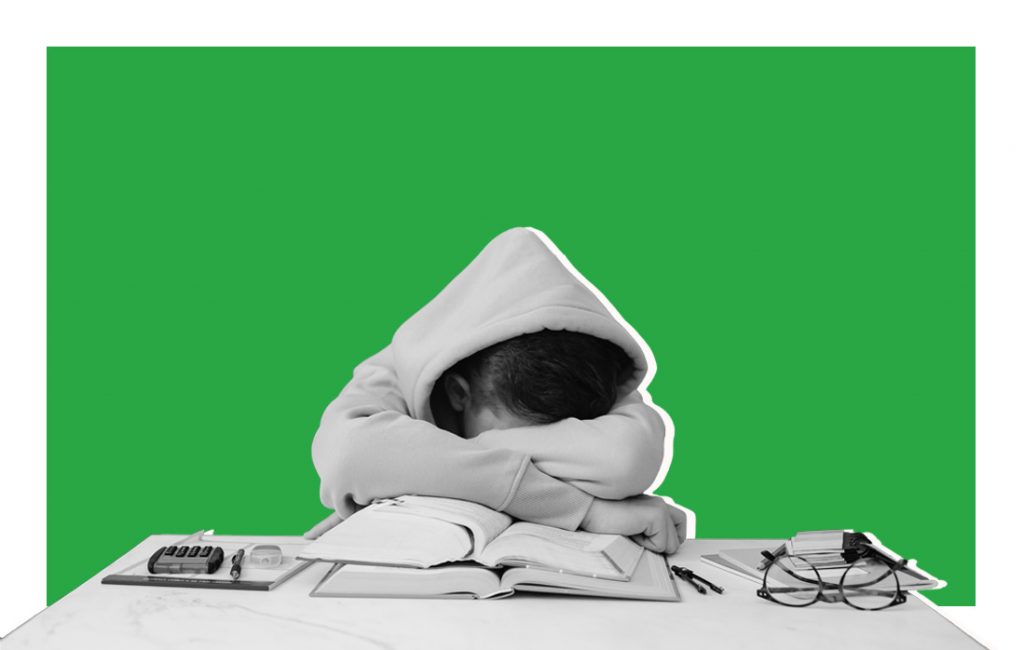
KVC Kansas also shared research that shows “academic stress leads to less well-being and an increased likelihood of developing anxiety or depression. Additionally, students who have academic stress tend to do poorly in school. This shows how this stress can keep kids from doing as well as they could.” (14)
Kids with extreme academic pressure on them could also lead to lost sleep. This is because some children will be bombarded with after school activities, lessons, tutoring, and feeling the need to stay up late to catch up on extra work. One American Psychological Association survey found that “Children age 8 to 17 say they worry about doing well in school, getting into good colleges and their family’s finances. They also report suffering headaches, sleeplessness and upset stomachs.” Survey results also showed that parents are largely unaware of this. (APA) This makes it extremely important for parents to get involved in their child’s education and ensure they know that the right amount of sleep is crucial for the best performance in the classroom.
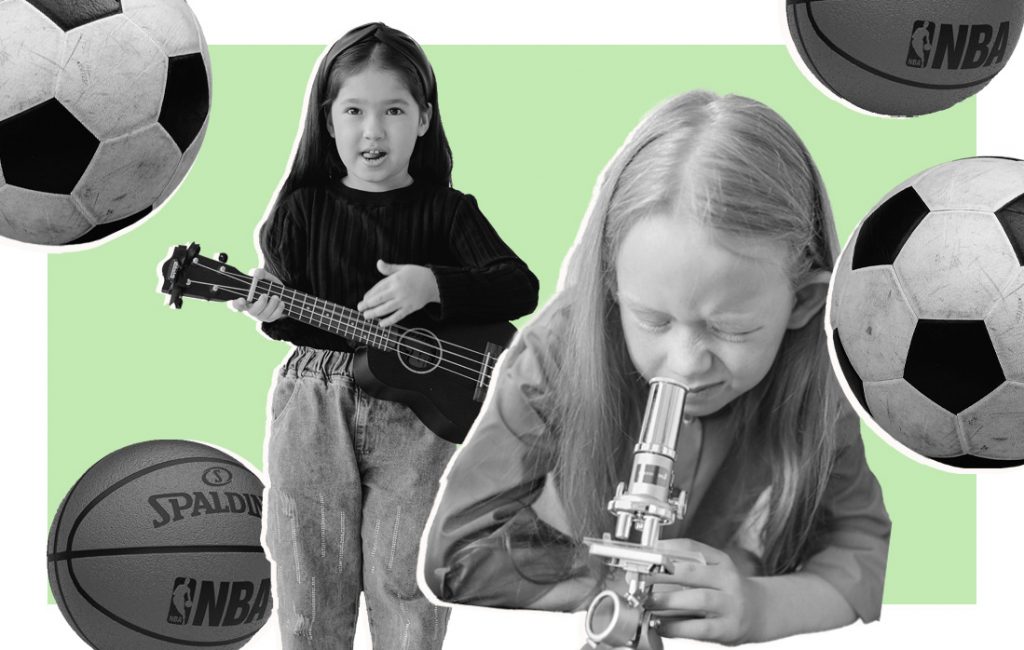
Whether they’re in the classroom or learning virtually, there are stressors in each situation. Especially with the pandemic introducing new technology with a quick learning curve and new expectations, it can be a lot for kids. (15)
COVID-19 has resulted in a mental health epidemic
Dr Ferguson says that “Covid-19: the pandemic itself has resulted in a mental health epidemic. The US surgeon general recently released a report that details the concern, noting that suicidal attempts in teens has increased by 51%. Anxiety and withdrawal has also significantly increased.”
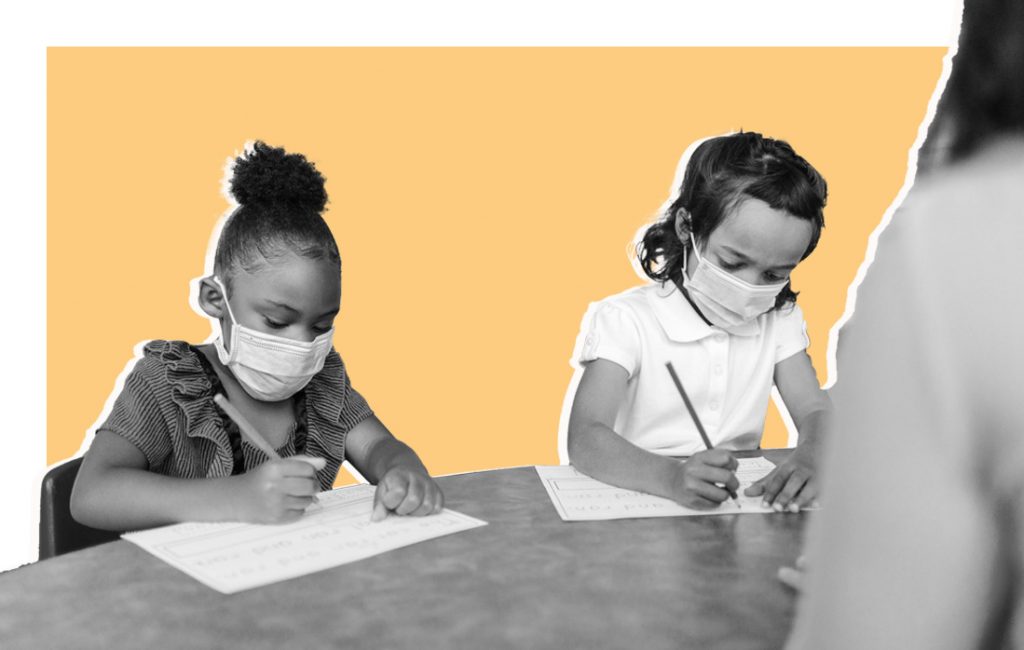
Janey Reilly strongly believes that “social isolation, removal from school, and changes in daily routines and activities” over the past 2 years of the pandemic have caused children to suffer. “We are slowly getting back to normal however these poor kids have basically had to put a hold on all things that kids love and thrive from,” said Reilly.
Reilly explains that pandemic-related stress can lead a child to worry or experience feelings of anxiety, making it hard for them to relax. This in turn affects the winding down period that helps that get to sleep. She also suggests that the “new normal” has thrown everyone’s routines, including those of children, out of whack due to work from home or other changes.
Last Word From Sleepopolis
As a reminder, we are not medical experts. Any child experiencing mental health concerns should consult a medical professional. With that said, in addition to children being aware of their own mental health, adults such as parents and teachers play a big role in the lives of children and can keep an eye out for warning signs.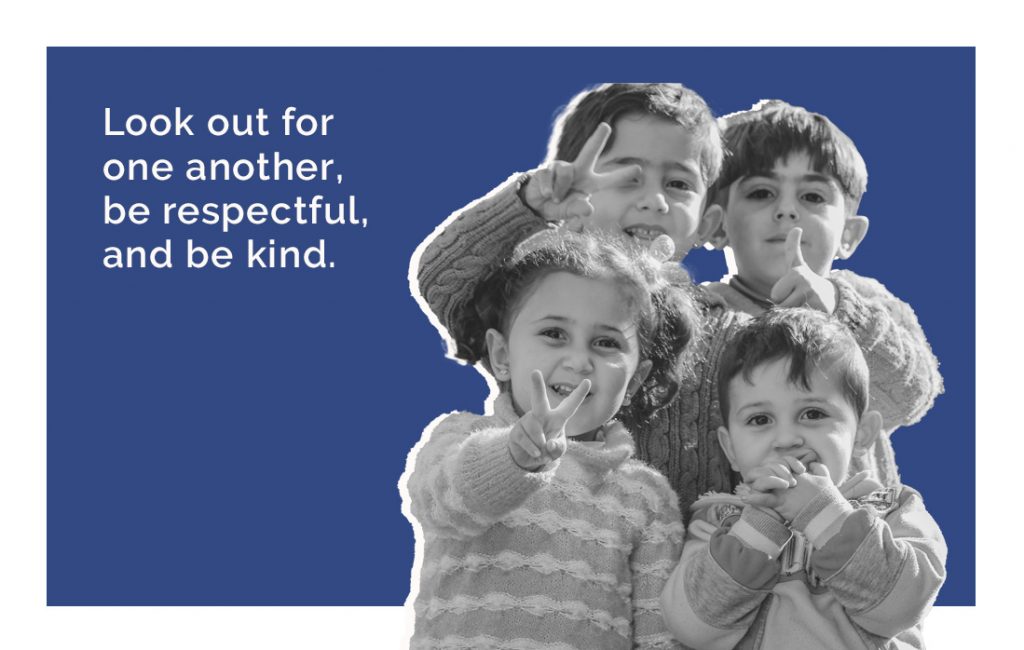
An adult or peer’s intervention could be a life-changing difference for someone, which is why their support is so crucial. Kids, look out for one another, be respectful, and be kind. Parents, stay involved in your child’s life, be a support system for them, and raise them in a household that never stigmatizes mental illness and celebrates each individual for who they are.
References
- Child Development, Positive Parenting Tips. Centers for Disease Control and Prevention (CDC). February 2021.
- Early Childhood Mental Health. Harvard University, Center on the Developing Child.
- Karen Cicero. 44 Children’s Books About Mental Health, Best books for helping kids understand emotional and learning challenges. Child Mind Institute.
- What is Children’s Mental Health? Children’s Mental Health. Centers for Disease Control and Prevention (CDC). September 2021.
- What is Bullying. Stopbullying.gov. November 2021.
- How Bullying and Sleep Impact One Another, Bullying, Tips and Techniques. Be Strong. April 2019.
- Brian D’Onofrio and Robert Emery. Parental divorce or separation and children’s mental health. World Phsyciatry, Official Journal of the World Psychiatric Associaiton (WPA). January 2019.
- Sleep Problems After Separation or Divorce. Healthychildren.org, American Academy of Pediatrics. July 2019.
- Teija Nuutinen, Carola Ray, and Eva Roos. Do computer use, TV viewing, and the presence of the media in the bedroom predict school-aged children’s sleep habits in a longitudinal study? BMC Public Health. July 2013.
- Jean M. Twenge. 2017 Children’s Mental Health Report: Smartphones and Social Media. Child Mind Institute. 2017.
- Anne Gold. Why Self-Esteem Is Important for Mental Health. National Alliance on Mental Illness (NAMI). July 2016.
- Jill Elish. Sociologists find low self-esteem at age 11 predicts drug dependency at 20. Florida State University (FSU), FSU News.
- Sakari Lemola, Katri Räikkönen, Veronica Gomez, and Mathias Allemand. Optimism and self-esteem are related to sleep. Results from a large community-based sample. National Library of Medicine, National Center for Biotechnology Information. December 2013.
- Michaela C. Pascoe, Sarah E. Hetrick and Alexandra G. Parker. The impact of stress on students in secondary school and higher education. International Journal of Adolescense and Youth. Volume 25. 2020.
- How Does Academic Stress Affect Mental Health in the Age of Digital Learning. KVC Kansas. November 2020.
